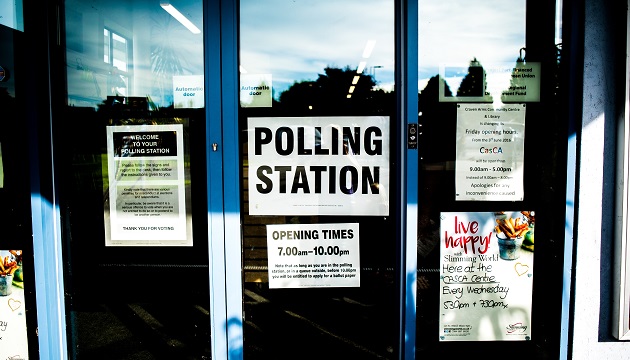The serious business of elections
The UK election raises two potential problems for Christians. One is not taking it seriously enough. The second is taking it too seriously.
08 JUNE 2017 · 09:53 CET

It’s a General Election. Again. And, like the last General Election two years ago and the referendum a year ago, we’re being asked to make a decision that will fundamentally impact the nature of our society and will have far-reaching effects for all of us.
It started as the Brexit election; Theresa May’s bid to secure a workable majority in the Commons that would enable her to drive through her vision for the UK’s departure from the EU, despite disagreement from those who were less convinced on both the opposition benches and sat behind her. Whilst that is still the background, the Brexit issue has become the context for a wider narrative. Choose the strong and stable leader, goes the argument, and you might find that the ‘better deal’ she gets is one that works for the few, not for the many. Yes, we might still have good trade arrangements with Europe, but at the expense of the NHS, policing and public services. Just as it might be valid to raise whether ‘strong and stable’ and ‘for the many’ should be mutually exclusive, voters might feel they are being presented with a double bind. Which is better, a ‘difficult woman’ or a ‘weak’ man?
Whilst all of this might once have sat in the realm of conjecture (economics seems far better at explaining what has happened rather than forecasting what will; in any case, compromise is in the nature of government and few manifestos survive first contact with the realities of winning), the recent terror attacks in Manchester and London have lent a keener edge to the issue. Who can keep us safe? Is strong leadership a good substitute for 10,000 police officers back on the beat?
Big elections take place relatively infrequently, and they are given a huge amount of publicity. They are billed as watershed events: the critical opportunity voters have to change the direction of their society, economy and lives. Those running for government become celebrities, whether the prominence they have in the media is better characterised as fame or infamy. They – the elections and the candidates – demand to be taken seriously.
This raises two potential problems for Christians. One is not taking it seriously enough. After all, this is one of the ways in which we help shape our society – not least in terms of social justice. We should carefully consider the options and exercise our vote.
The second problem is taking it too seriously. The way elections are presented suggests they are disproportionately significant. And in human terms, they are important. There will be real consequences in terms of prosperity and poverty, national security and civil liberties, depending on who next gets the keys to the supremely shiny door of Number 10. (Metaphorically, that is – there are no keys. The door does not have a keyhole and can only be opened from the inside.)
But the Bible is full of warnings about putting our trust in humans, rather than God. Whatever sphere of life we are thinking about, there are reminders that we should not forget where the buck really stops. ‘You may say to yourself, “My power and the strength of my hands have produced this wealth for me.” But remember the Lord your God, for it is he who gives you the ability to produce wealth, and so confirms his covenant, which he swore to your ancestors, as it is today.’ (Deuteronomy 8:17-18) ‘Do not be afraid or discouraged because of this vast army. For the battle is not yours, but God’s.’ (2 Chronicles 20:15)
We’re necessarily faced with two imperfect options (just how imperfect each is can be left to personal opinion). We can’t know the outcome of the election in advance; the polls differ wildly and we probably wouldn’t believe them any more even if they didn’t. It won’t change fundamental realities about who is in charge. So let’s take it seriously, but not too seriously.
Guy Brandon is the Senior Researcher for the Jubilee Centre.
This article first appeared on the website of the Jubilee Centre and was republished with permission.
Published in: Evangelical Focus - Jubilee Centre - The serious business of elections
